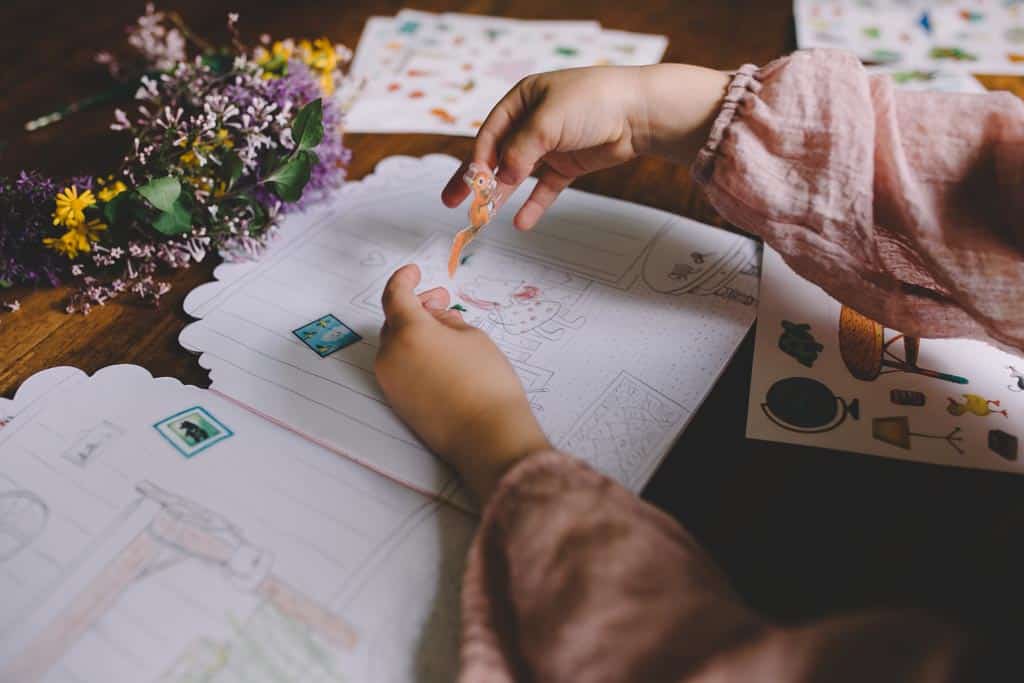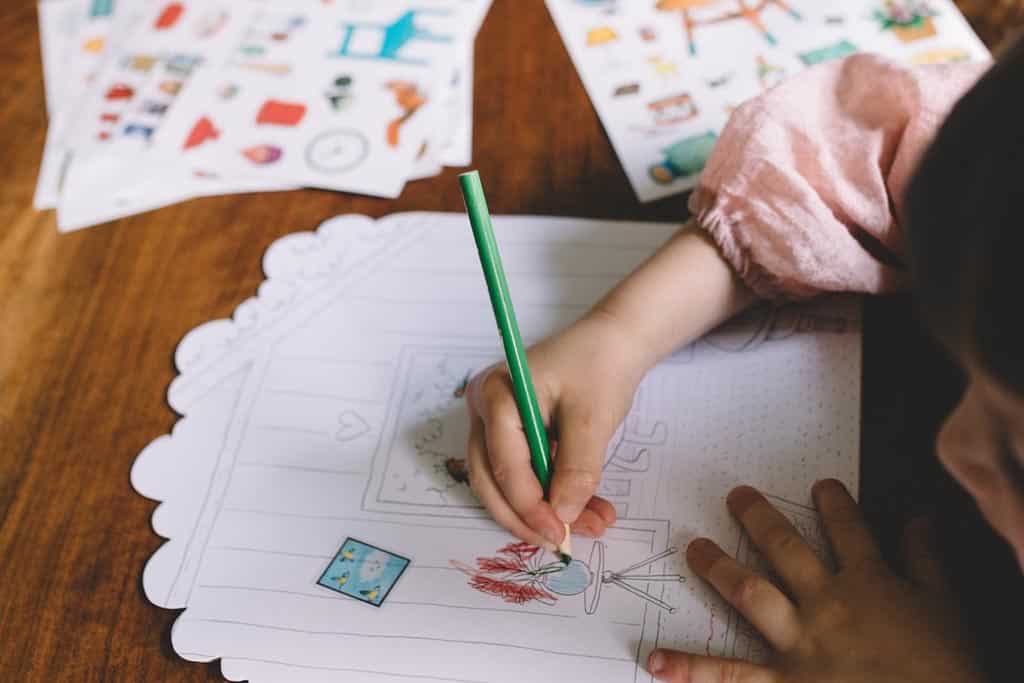It’s easy to get caught up in the academic preparations for starting school, but just as important as literacy and numeracy is the idea of self-care. What we mean by that, in this early-years context, is does your child have the skills and know-how they need to face the challenges a school day presents?
This includes using a knife and fork, doing up buttons or holding a pen. Can they put their coat on? Put their PE kit on and take it off again? Quickly? Can they go to the toilet by themselves? Blow their nose?
Being able to ‘look after’ themselves in these small ways might seem unimportant, but when these skills are difficult for a child it can begin to limit their experience in other ways. Not being able to put shoes on speedily, for example, might mean it takes longer to get outside at break-time, which means less opportunity to run around and forge friendships in the playground.
Self-care tips for starting school
(and making your life easier at home, too!)
- Use a knife and fork for every meal, no matter how much of food ends up on the floor. The only way they will get better is to try. Knife and fork together to show they have finished. Nobody leaves the table until everyone has eaten. And clear up afterwards: food in the bin, beaker on the worktop.
- If using a knife and fork proves difficult, start with something soft like a banana. Learn to use the knife first, pushing down to cut through. Then you can progress to holding it still with a fork.
- Practice carrying things on trays. The musical accompaniment to the first term in the dinner hall is the sound of plates sliding off trays and crashing onto the floor. Many schools try to get around this by using trays which have divisions for the food, removing the need for plates, but this doesn’t stop the water beaker falling off or the tray itself being dropped. An egg-and-spoon race in the garden is a fun way to introduce the idea of keeping something steady whilst moving or you could make a balance beam from an old plank. Increase the challenge by making it into an obstacle course.
- Leave plenty of time in the day for your child to dress themselves. In our busy lives it is tempting to take over and rush them along; sometimes there’s no other option but to do up their shoes or take over the hair-brushing. But even just the occasional handing over of the reins will have enormous benefits for them at school.
- A varied collection of dressing up clothes is a great way to practise. Make sure you provide clothes with a range of fastenings, including buttons, buckles, zips and poppers.
- Easier than doing up buttons on a shirt that you are wearing is to first practise on something else. Montessori nurseries use contraptions that look like square embroidery frames. They have two pieces of fabric strung across that you have to connect with a zip, buttons or laces.
- If you don’t have one of these frames, threading activities (such as making bead necklaces) can help to develop the necessary fine motor skills. What’s difficult about using fastenings is that they require both hands to be used together, and often in different ways. One hand keeps the garment stable whilst the other pulls, pushes or presses.
- Offer a choice of foods. At home, children are usually just presented with dinner, but at school there is often a choice between two or three options. Don’t let your child be the one holding up the dinner queue because they can’t decide between boiled or roast potatoes. This is also an exercise in taking responsibility for decisions.
- Do you know the foolproof way to put on a coat, without getting the arms in the wrong hole? Put it on the floor, with the head end at your feet. Put your arms into the sleeves and lift the coat up and over your head and, voila!, it’s on
- Hanging up a coat or bag might seem straightforward, but it’s surprising how many things end up on the floor or the wrong peg. This delays the whole class at home time and wastes the first part of most P.E. lessons.
- If your child hasn’t yet started to read, at least ensure that they recognise their name. They’ll need this to find their peg, drawer and books – and their jumper, too, if they’ve put it down in the playground somewhere.
- Get into the habit of washing – and drying! – hands before meals and after trips to the toilet. Picking up coughs and colds is unavoidable at school, but it’s best to avoid the more unpleasant bugs if possible.
- Next time you’re at the newsagent’s, give your child the money they need to buy their magazine and send them to the counter to pay for it themselves. You can even stand outside and watch through the window. Children rarely speak to unfamiliar adults alone but this happens all the time in school and the confidence gained from a simple task like this can go a long way.
- Give lots of praise and encouragement. None of these skills are easy to pick up and positivity helps perseverance.
This may sound like a lot to do over the next few weeks but it will make everyone’s life easier, including yours. And, as they become more independent, your child’s confidence will soar.
Read more about starting school.
Are you ready for school?
Do you have a preschooler? Would you like them to develop some key skills before starting school? How wonderful to go into school on that first day feeling like you belong.
Get Set Five is a year-long course full of fun and free activities to do with your child.




